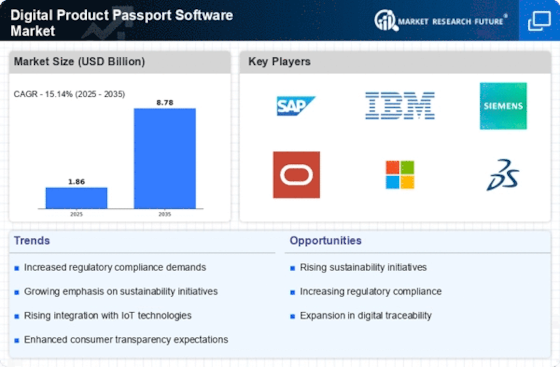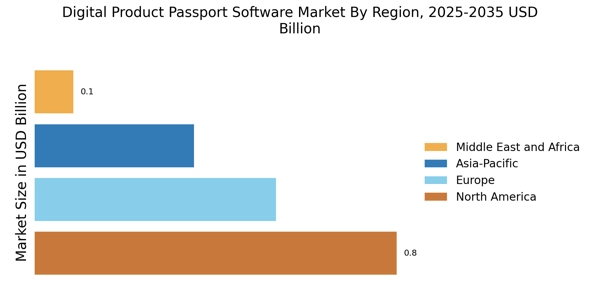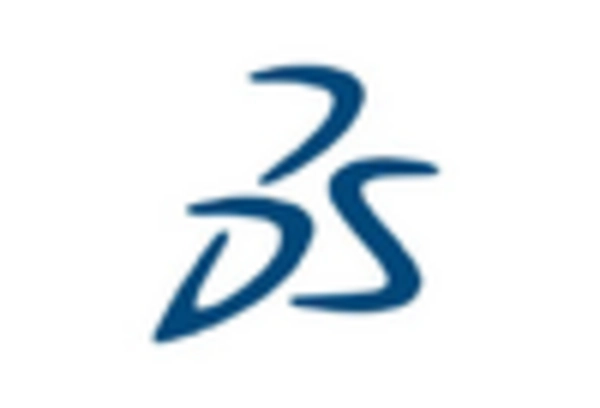Circular Economy Initiatives
The rise of circular economy initiatives is a critical driver in the Digital Product Passport Software Market. As businesses and governments advocate for sustainable practices, the need for systems that support product lifecycle management becomes paramount. Digital product passports play a vital role in this context by providing essential information on product reuse, recycling, and disposal. This information empowers consumers and businesses to make informed decisions that align with circular economy principles. The market is witnessing an uptick in investments aimed at developing software solutions that facilitate the transition to a circular economy, indicating a growing recognition of the importance of sustainability in product design and management.
Regulatory Compliance Pressure
The increasing pressure for regulatory compliance is a notable driver in the Digital Product Passport Software Market. Governments and regulatory bodies are implementing stringent regulations aimed at enhancing product traceability and sustainability. This trend compels manufacturers to adopt digital product passports to ensure compliance with environmental standards and consumer safety regulations. For instance, the European Union has introduced regulations that require detailed product information to be accessible throughout the supply chain. As a result, companies are investing in digital product passport solutions to avoid penalties and enhance their market reputation. The market for digital product passport software is projected to grow as businesses seek to align with these evolving regulatory frameworks, indicating a robust demand for compliance-driven solutions.
Consumer Demand for Transparency
Consumer demand for transparency is reshaping the Digital Product Passport Software Market. Modern consumers are increasingly concerned about the origins and sustainability of the products they purchase. This shift in consumer behavior drives companies to provide detailed product information, including sourcing, manufacturing processes, and environmental impact. Digital product passports serve as a tool to meet these consumer expectations by offering accessible and verifiable product data. According to recent surveys, a significant percentage of consumers express a willingness to pay more for products that are transparently sourced and sustainably produced. Consequently, businesses are adopting digital product passport software to enhance consumer trust and loyalty, thereby fueling market growth.
Competitive Advantage through Innovation
In an increasingly competitive landscape, innovation is a key driver in the Digital Product Passport Software Market. Companies are leveraging digital product passports to differentiate themselves by offering unique value propositions to consumers. By integrating advanced features such as real-time tracking, sustainability metrics, and enhanced user interfaces, businesses can create a competitive edge. This focus on innovation not only attracts consumers but also fosters brand loyalty. As organizations strive to stay ahead in the market, the demand for cutting-edge digital product passport solutions is likely to increase, suggesting a dynamic and evolving market landscape.
Technological Advancements in Data Management
Technological advancements in data management are significantly influencing the Digital Product Passport Software Market. Innovations in cloud computing, blockchain, and data analytics are enabling companies to efficiently manage and share product information across the supply chain. These technologies facilitate the creation of comprehensive digital product passports that can be easily updated and accessed by stakeholders. As organizations increasingly recognize the value of real-time data in decision-making, the demand for sophisticated digital product passport solutions is expected to rise. The integration of these technologies not only enhances operational efficiency but also supports compliance with regulatory requirements, thereby driving the market forward.

















